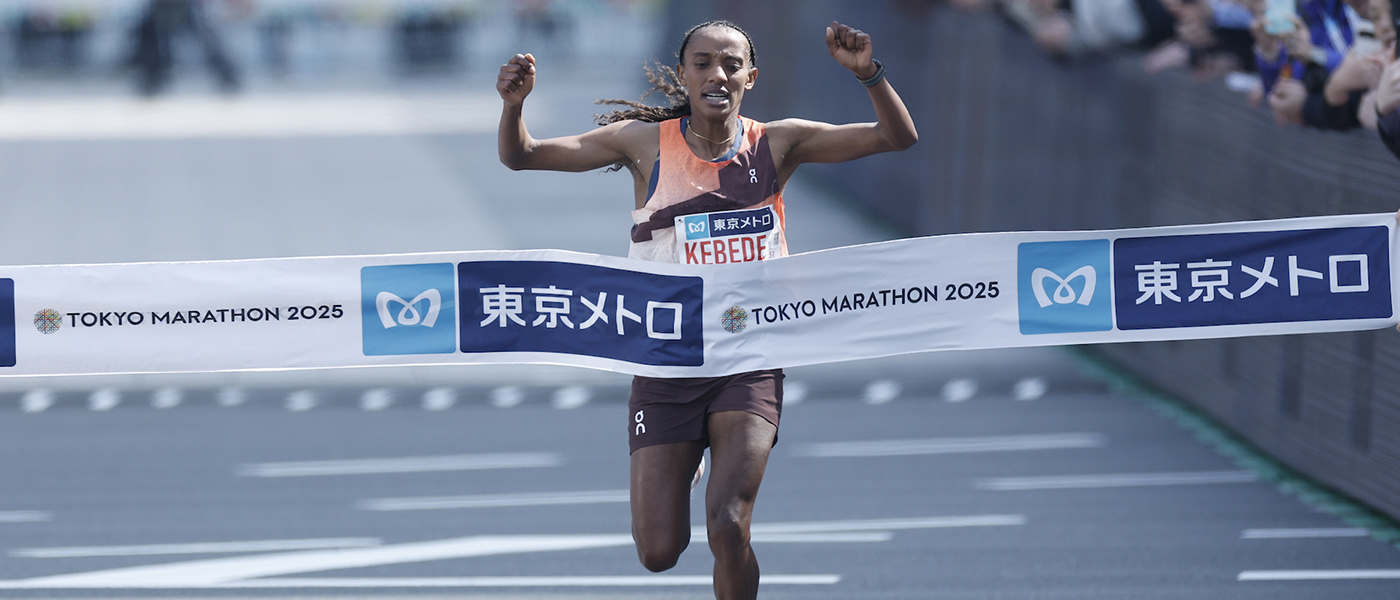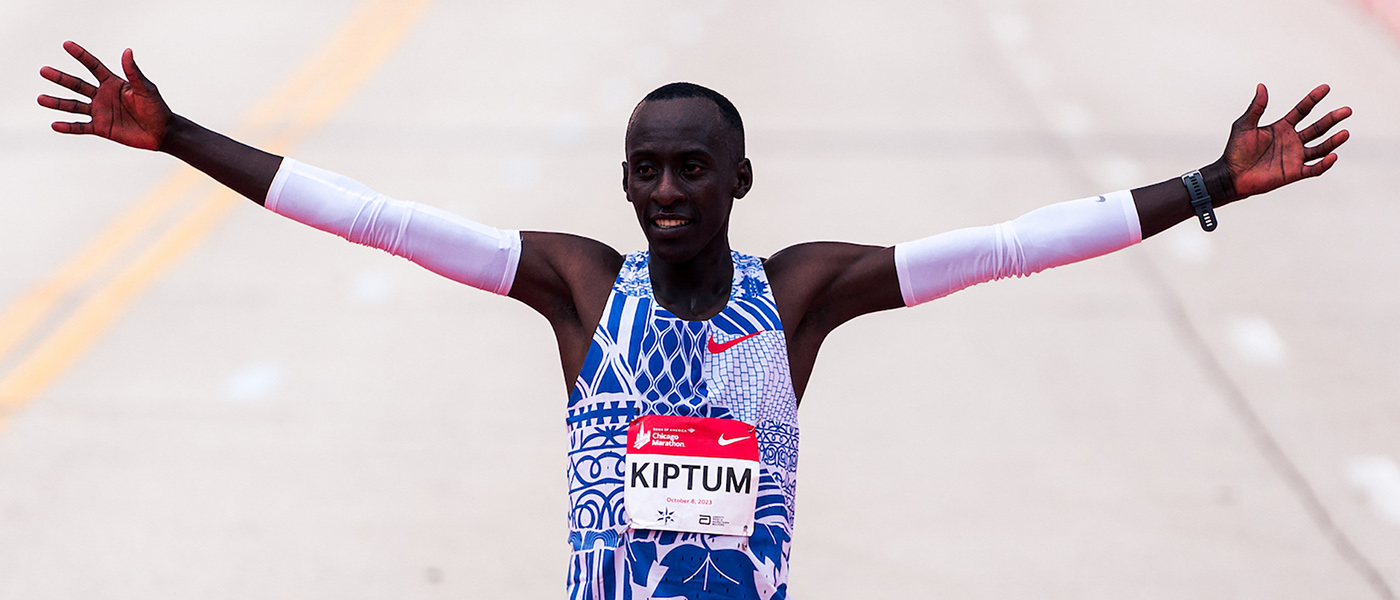When Mizuho Nasukawa sets off from Blackheath at the start of the elite women's race in the Virgin London Marathon on Sunday morning she'll be surrounded by seven of her fellow Japanese athletes. But it will be a former team-mate who's high in the thought.
Taiko Osawa, a school friend of the former Tokyo marathon winner, died along with one of her daughters in the tsunami that devastated Japan last month following the massive 8.9 earthquake which struck off the country's east coast on 11 March.
"She had two daughters and when they found her body she was holding one of her children who had died," Nasukawa revealed today.
"Her husband and other daughter managed to escape.
"My spirit was completely broken and I was shocked when I heard my friend passed away. We were team-mates in the high school ‘ekiden' road races.
"I could not concentrate on my training after hearing the news and the Japanese media were asking me about my friend, but a lot of my team-mates and the people where I live supported me and helped me overcome how I was feeling.
"I realised coming to London and doing my best through my running would be the best way to remember my friend."
Nasukawa is one of the seven runners who were added to the London Marathon field when the tragedy caused the cancellation of the Nagoya International Women's marathon on 13 March and the Nagano marathon, scheduled for 17 April.
The Nagoya marathon was a selection race for Japan's Daegu world championship team this August, so the athletes thought their selection chances had gone.
Tadasu Kawano, vice-director of Japanese athletics' high-performance centre, spoke for the federation when he thanked the London Marathon organisers for their gesture.
"The Japanese athletic federation was caught in a difficult situation when we could not hold the final selection race," said Mr Kawano. "The London Marathon generously gave our athletes the chance to run.
"I don't know how we can express our appreciation for the warm welcome and generosity we've received. I believe the best way is for the Japanese athletes here to do their best on Sunday. That is the only way to do it."
It was a sentiment echoed by the athletes.
"After Nagano was cancelled, for several weeks none of us knew if we were going to be able to run," said Nasukawa who comes from Oshu, in the Iwate Prefecture, one of the areas worst affected by the earthquake.
"It was difficult to keep training and to maintain our condition. But when we knew we could run here we wanted to come and run in London whatever our condition.
"To have a one month delay for a race is hard. It's the first time it's happened to me and I didn't know what to do. But I talked to my coach and left the training side up to him. That removed a big part of the stress.
"But it was the spiritual and emotional stress that was difficult for me. I was at breaking point and it was very tough to do the training on my own. But with my friends at home and support from my teammates I realised there is nothing to do but keep on running."
Four of the athletes in London were among a group of nine runners and six staff who had also been caught up in the earthquake in New Zealand just a few weeks before Japan was hit. Yukiko Akaba, who placed sixth in London last year, was among them.
"When the earthquake struck it was just after noon," she explained. "We had just finished lunch and everyone was going back to their rooms but we had to escape outside to a nearby park. To be honest it was a very frightening and scary experience.
"I did not believe I would be able to get back to Japan but I was so happy when I did. I went to a training camp on the south island but I was still worried about my four-year-old daughter, Yuna.
"It was such a relief when I was reunited with her. But straight after she came to the training camp the new earthquake struck. Then there was another tragedy with the radiation, so I couldn't train well. Many bad things were happening continuously but now there's nothing to do, I just have to run."
Akaba is likely to be selected for Japan's team following her victory in the Osaka marathon in January. But many of her team-mates will be battling for places with the trauma of their experiences still fresh in their minds. Azusa Nojiri was another who lived through the Christchurch earthquake, but learned later that a number of students from her home town of Toyama had been killed while on a study trip to the New Zealand city.
"The experience in New Zealand, then again in Japan, was quite awful," she said. "And then to see what was going on with the nuclear power stations, and seeing the problems of my fellow Japanese is very emotional."
Asked what it would mean for a Japanese runner to win, Mr Kawano said: "We know, of course, that will be very difficult. For us it is a big step to have our qualification race at such a great marathon, and it will help the athletes who are trying to qualify for next year's Olympics."
It was Yurika Nakamura, a former winner of the Nagaoya marathon, who put it best, however. "I hope in some way, by running here, we are contributing to the recovery of Japan's spirit."
It was not just runners who were affected by the destruction. Wheelchair racer Choke Yasuoka was in the toilet of his 14th floor Tokyo apartment when the earthquake struck. "It is quite common in Japan to get quakes but this time I knew it was very strong," he said. "I thought, ‘This is a big one.'
"I wanted to watch the TV to see what was happening but the TV had fallen off the wall, and I had to grab hold of a big box to steady myself because the whole block was swaying with the force.
"Thankfully, I was OK and so was my family. I didn't die and for that I am happy. But for the Japanese people it is very hard."
In order to carry on training, Yasuoka has had to move with his family to the south of Japan, near Oita, site of a prestigious wheelchair marathon. "It was because of the nuclear threat," he explained. "I needed to keep training and I couldn't go outside in Tokyo.
"I had to try and keep everything normal. Luckily I didn't lose too much fitness. I really want to do well here because it will help me do well at the Paralympics next year."
Yasuoka has raced in London twice before, finishing fifth in 2007. He'll be joined on the start line this year by London first-timer Nobukazu Hanaoka who was due to race in the Nagano marathon this Sunday before the race was cancelled in the wake of the disaster.
"This will be a big difference for me," said Hanaoka, who was sixth at this year's IPC World Championships. "Nagano is a small race compared to London, so this very different. But still I am going to try to win."
Hanaoka, who's also from Tokyo, added that all Japanese people are coping with the situation at the moment. "But we are alive, so at least we can compete, and we have to continue to race. That's what we do."
Other news

Episode 84: Hall In For Tokyo! - Marathon Talk meets Sara Hall as we preview the Tokyo Marathon

Kebede eyes history in Tokyo



